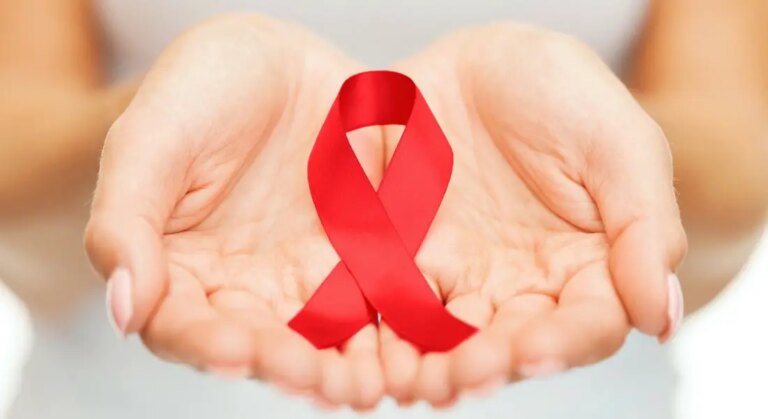In our lives, there’s a sentiment that unites us all: the ache of a broken heart. Whether it’s triggered by the loss of a loved one, the end of a relationship, or the blow of unexpected adversity, we’re familiar with the emotional toll it takes.
But did you know that beyond the emotional impact, a tangible physical response occurs within us? This is where “takotsubo,” known as broken heart syndrome, takes the spotlight – revealing the intricate connection between our emotions and our body’s physiology.
The Captivating Phenomenon of ‘Takotsubo’
In Japan, up to 7% of all sudden cardiac hospital admissions are diagnosed as “takotsubo.” [1]
Takotsubo, also known as broken heart syndrome or heartbreak disease, is a captivating medical phenomenon that intricately links emotions with physiological responses. Its name, though intriguing, carries a poignant history.
The term originates from Japan in 1990, where “tako-tsubo” translates to “octopus trap.” This name was inspired by the unique shape of the heart during the syndrome, resembling a pot used by Japanese fishermen to catch octopuses. The heart’s left ventricle takes on a ballooned appearance with a narrow neck, closely resembling the takotsubo vessel. [2]
Beyond its name lies a deeper metaphor – a heart seized by emotional turmoil, much like an unsuspecting octopus caught in a trap. This symbolism adds layers of poignancy to the medical condition, underscoring the intricate interplay between emotions, stress, and cardiac health.
Heartbreak Disease – The Physiology of a Broken Heart
Takotsubo highlights the powerful connection between the brain and the heart. Emotional distress triggers the release of stress hormones, including adrenaline and cortisol, which can temporarily disrupt the heart’s rhythm and function. This surge in hormones can lead to weakened heart muscles and compromised blood flow, mimicking the symptoms of a heart attack.

The autonomic nervous system, responsible for regulating involuntary bodily functions, plays a pivotal role in the heartbreak disease. The surge of stress hormones activates the “fight or flight” response, causing a sudden increase in heart rate and blood pressure. This heightened physiological state can strain the heart, particularly the left ventricle, leading to its characteristic ballooning shape. [2,3]
A range of emotional situations can lead to this condition, from seemingly “mild” events like public speaking or a surprise party to life-changing experiences such as severe bad news, illness, death, domestic violence, or separation from loved ones.
Symptoms of Broken Heart Syndrome vs. Heart Attack
Takotsubo often presents with symptoms that mirror those of a heart attack, including chest pain or discomfort, shortness of breath, and rapid heartbeat, which may lead to misdiagnosis.
Medical tests often reveal dramatic changes in heart rhythm and blood substances, typical of a heart attack. However, unlike a heart attack, there is no evidence of blocked heart arteries.
During this syndrome, a portion of the heart temporarily enlarges and exhibits reduced pumping ability while the rest of the heart continues to function normally or with even more forceful contractions.
Women are more susceptible than men to experiencing sudden and intense chest pain, triggered by a surge of stress hormones in response to emotionally stressful events.

My Personal RX on Healing a Broken Heart
Dealing with a broken heart, whether it’s due to emotional stress, grief, or a personal setback, can be a profound and challenging experience. As we unravel the scientific intricacies of takotsubo heartbreak disease, it’s essential to address the emotional toll it can take. Coping with heartbreak requires not just an understanding of the medical aspect but also strategies to support emotional well-being. Here are my personally prescribed recommendations for dealing with a broken heart.
- Prioritize Emotional Well-being: Recognize the intimate connection between emotional stress and your physical health. In moments of heartbreak, take the time to acknowledge your feelings and seek healthy ways to cope, such as through talking to friends or seeking professional support.
- Practice Stress Management: Understanding the potential impact of emotional stress on your heart should motivate you to adopt stress-reduction techniques. Engage in activities like deep breathing, meditation, or regular exercise, which can mitigate the physiological responses associated with emotional turmoil.
- Build a Support Network: Remember, you’re not alone in experiencing heartbreak. Surround yourself with a strong support network of friends, family, or support groups. Sharing your feelings and seeking companionship can help alleviate emotional burdens and, in turn, potentially ease the physical strain on your heart.
- Tackle Heartbreak From Within: Download my free Calm the Chaos Meditation Guide to help alleviate emotional strain and promote heart health during challenging times. This 7-day guided meditation program offers tools to navigate emotional turmoil and foster a sense of tranquility.
- Support Your Body for Resilience: Try my Adrenal Support supplements, specially designed to promote healthy adrenal gland function and help the body better cope with stress. This supplement helps alleviate emotional strain and promote overall heart health during challenging times.
Remember, healing from emotional distress takes time and effort. By incorporating these health recommendations into your routine, you can foster emotional resilience, navigate heartache more effectively, and gradually move towards a place of healing.

Sources:
- Wiseman, E. (2022, August 28). ‘Clinically awful’: why the pain of a broken heart is real. The Guardian. https://www.theguardian.com/lifeandstyle/2022/aug/28/clinically-awful-why-the-pain-of-a-broken-heart-is-real
- Harvard Health. (2023, June 13). Broken-heart syndrome (takotsubo cardiomyopathy). https://www.health.harvard.edu/heart-health/takotsubo-cardiomyopathy-broken-heart-syndrome
- Henríquez, C., Landau, R. J., Sabharwal, N., Rodriguez, D., Virparia, V., Sadiq, A., & Shani, J. (2018). Unusual sequence of events in a case of Takotsubo syndrome. Case Reports in Cardiology. https://doi.org/10.1155/2018/5498052
- Is broken heart syndrome real? (2023, May 9). www.heart.org. https://www.heart.org/en/health-topics/cardiomyopathy/what-is-cardiomyopathy-in-adults/is-broken-heart-syndrome-real



















